
Hondori: The Heartbeat of Hiroshima
Hondori is a bustling pedestrian arcade located in the heart of Hiroshima, Japan. This vibrant shopping street is lined with a mix of modern shops, traditional eateries, and quirky boutiques, making it a must-visit for tourists seeking to experience the essence of Hiroshima. The covered arcade provides a perfect setting for a leisurely stroll, rain or shine. As you wander through, you’ll encounter a variety of stores offering everything from trendy fashion and electronics to local crafts and souvenirs. Hondori’s dynamic atmosphere is amplified by street performers and occasional festivals, adding to the lively vibe. Food lovers will delight in the wide array of dining options available. From savory okonomiyaki—a Hiroshima specialty—to fresh sushi and international cuisine, there’s something to satisfy every palate. Don't miss the chance to stop by one of the cozy cafes for a quick coffee break or a sweet treat. Hondori is also conveniently located near several key attractions, including the Hiroshima Peace Memorial Park and the Atomic Bomb Dome, making it an ideal starting point for exploring the city’s rich history and culture. Whether you're shopping, dining, or simply soaking in the local ambiance, Hondori offers a unique and memorable experience.
Local tips in Hondori
- Visit early in the morning to avoid the crowds and enjoy a more relaxed shopping experience.
- Check the local event calendar for festivals or street performances taking place during your visit.
- Wear comfortable shoes as you’ll be doing a lot of walking.
- Take advantage of the covered arcade to explore even on rainy days.
- Combine your visit with a trip to nearby attractions like Hiroshima Peace Memorial Park.
Hondori: The Heartbeat of Hiroshima
Hondori is a bustling pedestrian arcade located in the heart of Hiroshima, Japan. This vibrant shopping street is lined with a mix of modern shops, traditional eateries, and quirky boutiques, making it a must-visit for tourists seeking to experience the essence of Hiroshima. The covered arcade provides a perfect setting for a leisurely stroll, rain or shine. As you wander through, you’ll encounter a variety of stores offering everything from trendy fashion and electronics to local crafts and souvenirs. Hondori’s dynamic atmosphere is amplified by street performers and occasional festivals, adding to the lively vibe. Food lovers will delight in the wide array of dining options available. From savory okonomiyaki—a Hiroshima specialty—to fresh sushi and international cuisine, there’s something to satisfy every palate. Don't miss the chance to stop by one of the cozy cafes for a quick coffee break or a sweet treat. Hondori is also conveniently located near several key attractions, including the Hiroshima Peace Memorial Park and the Atomic Bomb Dome, making it an ideal starting point for exploring the city’s rich history and culture. Whether you're shopping, dining, or simply soaking in the local ambiance, Hondori offers a unique and memorable experience.
Iconic landmarks you can’t miss
Atomic Bomb Dome
A haunting reminder of Hiroshima's atomic bombing, preserved as a symbol of peace and a UNESCO World Heritage Site.
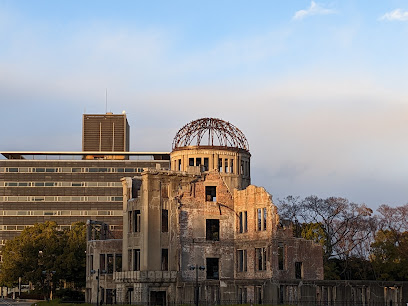
Peace Memorial Park - Hiroshima
Reflect on history and envision a peaceful future at Hiroshima's iconic memorial park, a symbol of resilience and hope.
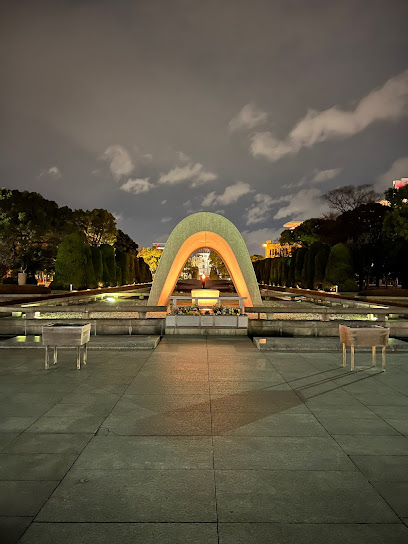
Hiroshima Peace Memorial Museum
Reflect on Hiroshima's past, witness the atomic bombing's impact, and commit to global peace at this poignant memorial museum.
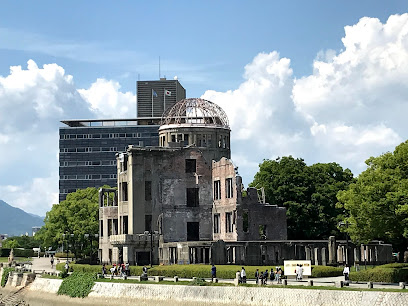
Hiroshima National Peace Memorial Hall
A place for remembrance and reflection, the Memorial Hall preserves the stories of atomic bomb victims and promotes a message of peace.
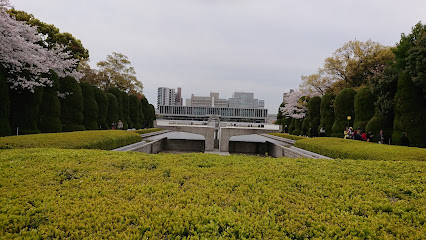
Children's Peace Monument
A touching memorial in Hiroshima Peace Memorial Park, dedicated to the children who perished from the atomic bomb and a symbol of hope for world peace.

Former Hiroshima Branch of the Bank of Japan
Witness Hiroshima's resilience at the Former Bank of Japan, a historical landmark that survived the atomic blast and symbolizes the city's recovery.
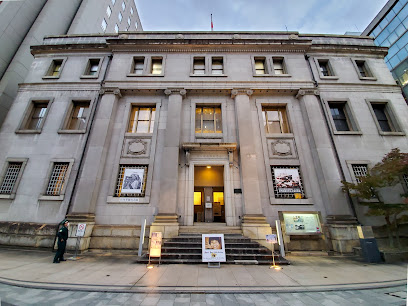
Clock Tower of Peace
A symbol of Hiroshima's resilience, the Clock Tower of Peace calls for a world free from nuclear weapons with its daily chime at 8:15 a.m.
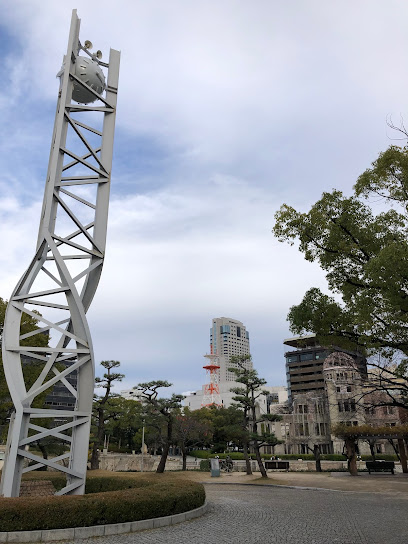
Hondori Shopping Street
Explore the vibrant Hondori Shopping Street in Hiroshima, a bustling hub of culture, shopping, and delectable local cuisine.
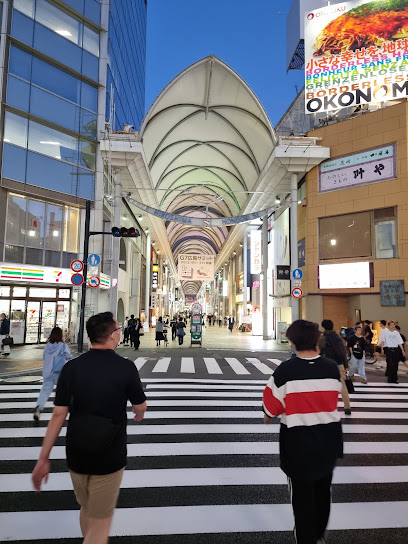
Former place of Kokutaiji Temple and Atago Pond
Discover Hiroshima's resilience at the tranquil site of the Former Kokutaiji Temple and Atago Pond, a serene escape with historical significance.
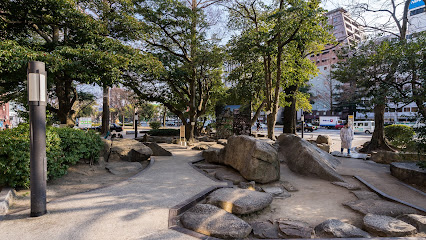
Mahatma Gandhi Statue
Reflect on peace and non-violence at the Mahatma Gandhi Statue, a symbol of harmony in Hiroshima's Peace Memorial Park. A gift from India to Japan.
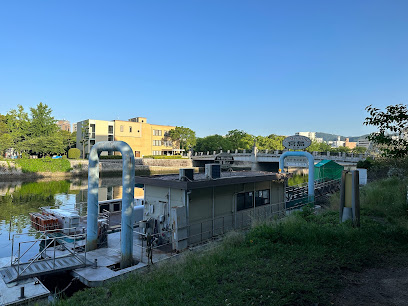
Essential places to dine
Ichiran Hiroshima Hondori shop
Experience authentic tonkotsu ramen in individual booths at Ichiran Hiroshima Hondori, where flavor meets privacy in every bowl.
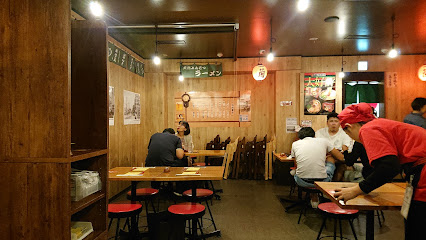
Kaki-goya Kaisenizakaya Toyomaru Suisan Hiroshima Hondori Branch
Savor authentic Japanese seafood and sushi at Kaki-goya Kaisenizakaya Toyomaru Suisan in Hiroshima's lively Hondori district.
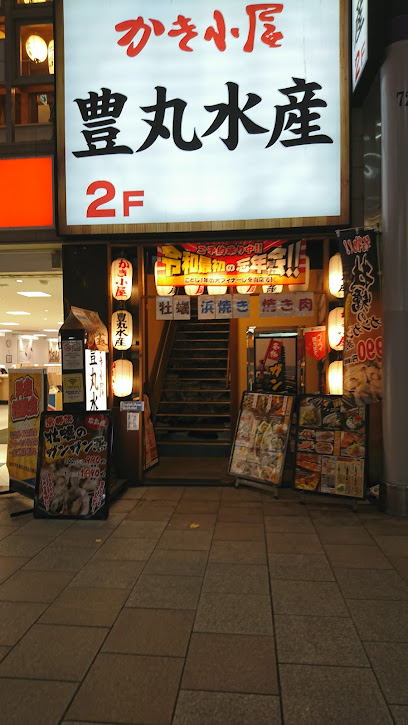
ガスト 広島本通店
Experience family-friendly dining at Gusto Hiroshima with delicious Japanized Western dishes and convenient takeout options.
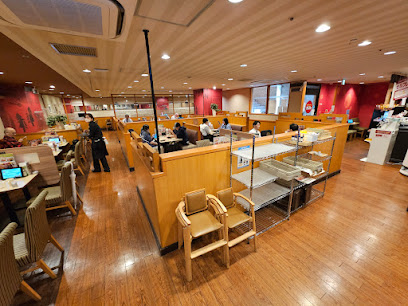
Ootoya Hiroshima Hondori Branch
Experience authentic Japanese cuisine at Ootoya Hiroshima Hondori Branch – a delightful blend of tradition and flavor awaits you.
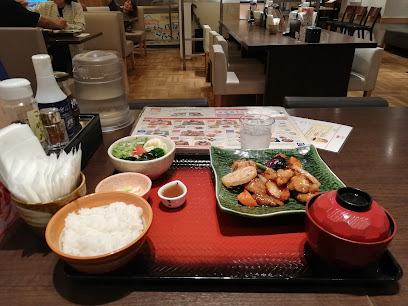
Graffity
Savor the vibrant fusion of Mexican and American cuisine at Graffity in Hiroshima—where every bite is a celebration of flavor.
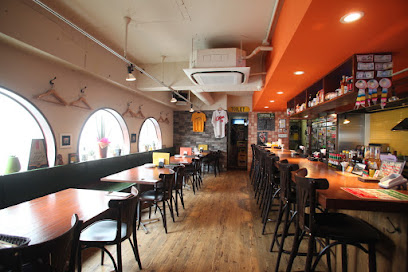
Gariber
Experience authentic Japanese curry at Gariber in Hiroshima – where tradition meets flavor in every dish.
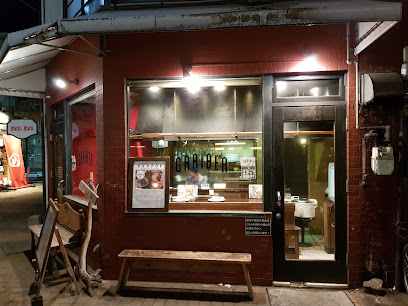
しゃぶ葉 広島本通店
Discover the authentic taste of Japan at Shabu-Yo Hiroshima with family-friendly hot pot dining experiences that celebrate local flavors.
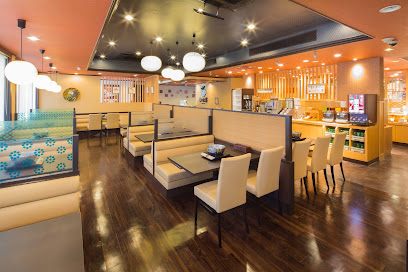
Reddorokku Hiroshimaten
Discover Reddorokku Hiroshimaten: where Japanese tradition meets Western culinary excellence in the heart of Hiroshima.
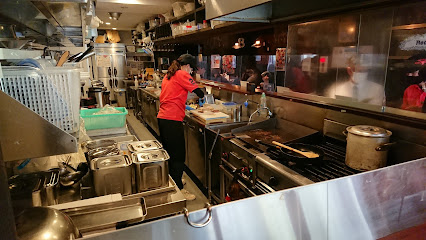
Shibaraku Hondoriten
Discover Shibaraku Hondoriten in Hiroshima: Savor exquisite oysters and authentic teppanyaki at this vibrant izakaya.
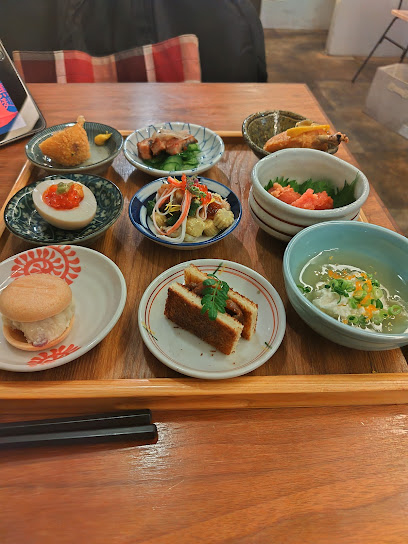
Nanak Hiroshima store
Savor authentic Indian flavors at Nanak Hiroshima Store – a culinary gem in the heart of Hiroshima offering diverse dishes and warm hospitality.
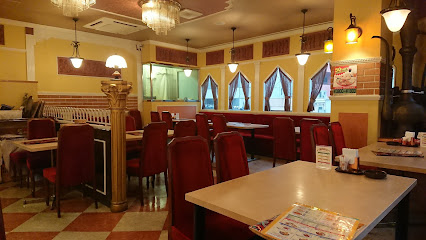
Markets, malls and hidden boutiques
Hiroshima PARCO
Discover shopping bliss at Hiroshima PARCO, where fashion meets culture in the heart of Hiroshima.
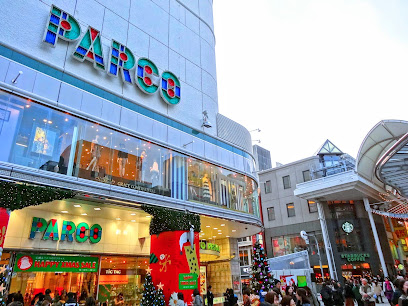
Yume Plaza
Explore Yume Plaza in Hiroshima for a delightful selection of unique souvenirs and local crafts that embody the spirit of Japan.
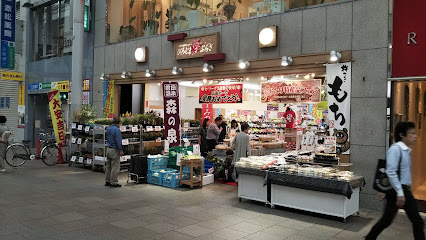
JUMP SHOP広島店
Explore the vibrant world of anime and manga at JUMP SHOP Hiroshima, your go-to destination for exclusive collectibles and merchandise.
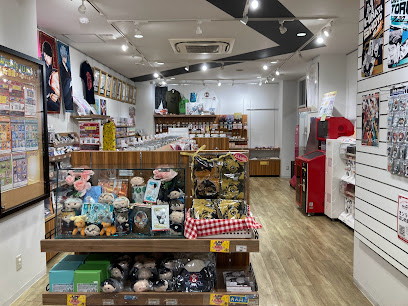
BEAMS HIROSHIMA
Explore BEAMS Hiroshima for a unique blend of contemporary Japanese fashion and accessories, perfect for every style-conscious traveler.
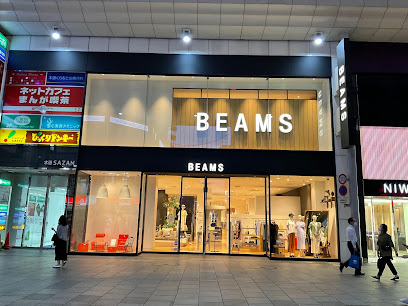
Nagasakiya
Discover authentic Japanese souvenirs and crafts at Nagasakiya, a charming store in Hiroshima's vibrant Hondori area, perfect for every traveler.
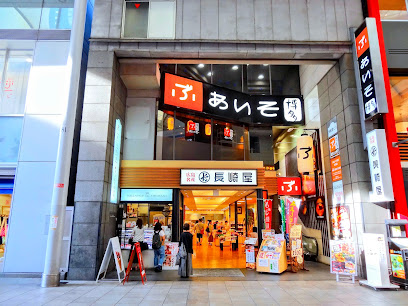
Hondori Shopping Street
Experience the energy of Hondori Shopping Street, Hiroshima's ultimate shopping destination filled with diverse shops, delicious food, and vibrant culture.
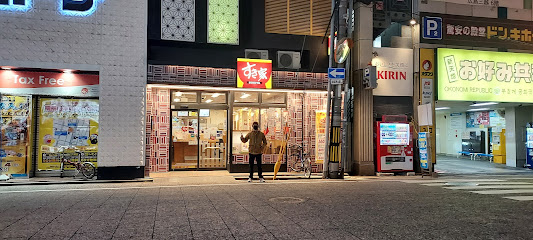
BIG TIME Hiroshima
Explore BIG TIME Hiroshima – a vintage clothing store where fashion history comes alive with unique finds and timeless treasures.
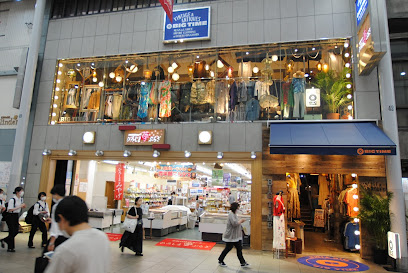
Sanrio Gift Gate
Immerse yourself in the enchanting world of Sanrio at Sanrio Gift Gate, Hiroshima's ultimate destination for adorable merchandise and unforgettable souvenirs.
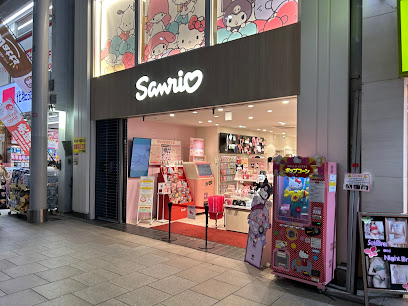
ドリームマーケット広島店
Experience the vibrant shopping scene at Dream Market Hiroshima, where unique finds and unbeatable prices await in the heart of the city.
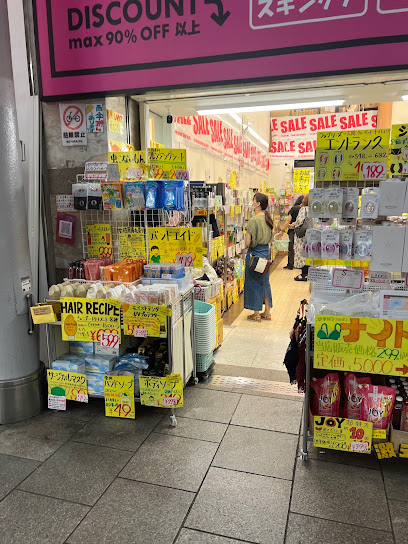
リンダファクトリー
Explore the vibrant リンダファクトリー in Hiroshima for unique souvenirs and local artistry that capture the spirit of this historical city.
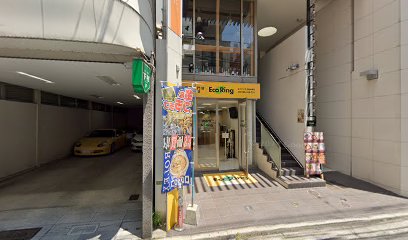
Essential bars & hidden hideouts
SHACK
Delight in the vibrant flavors of Hiroshima at SHACK, a must-visit grill restaurant offering a diverse menu in a lively atmosphere.
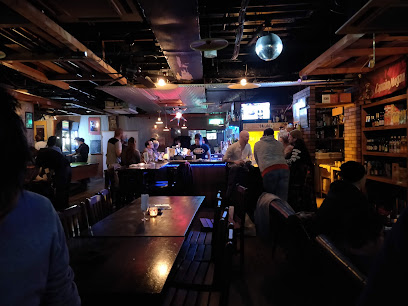
REAL BEER STYLE GOLDEN GARDEN ゴールデンガーデン
Experience the best craft beers and delicious bites at REAL BEER STYLE GOLDEN GARDEN, a vibrant pub in the heart of Hiroshima.
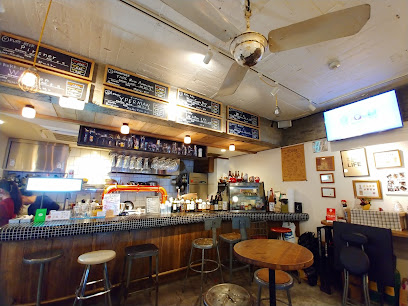
Mac Bar
Experience the vibrant nightlife at Mac Bar in Hiroshima, where innovative cocktails and a lively atmosphere await you.
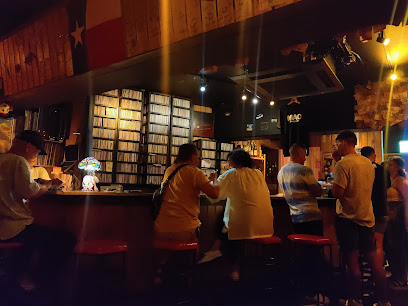
Bar the Lounge Top Note (ザ ラウンジ トップノート 別館)
Discover the sophisticated charm of Bar the Lounge Top Note in Hiroshima, where exquisite cocktails meet an elegant atmosphere for an unforgettable night out.
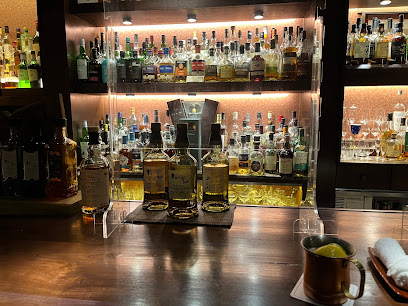
Lemon Stand Hiroshima (Lemon sour, Craft beer, Raw oyster, Curry, Natural wine)
Discover the fresh flavors of Hiroshima at Lemon Stand, where exquisite oysters, craft beers, and natural wines await in a cozy atmosphere.
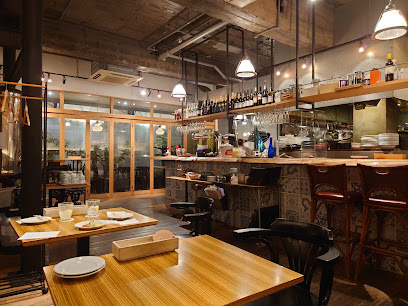
SAND BAR
Experience the vibrant nightlife of Hiroshima at SAND BAR, where crafted cocktails and a lively atmosphere await every visitor.
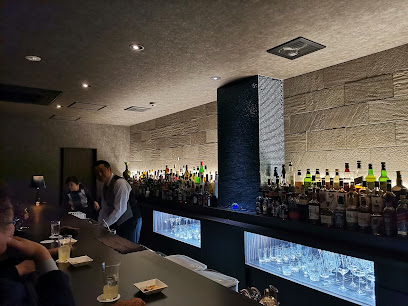
The Bar Top Note Ⅲ
Experience the lively atmosphere and exquisite drink selection at The Bar Top Note Ⅲ in Hiroshima's vibrant nightlife hub.
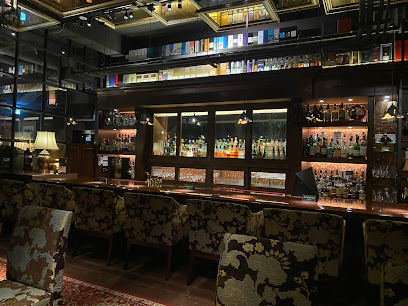
PUB and BAR PIC
Discover the vibrant nightlife of Hiroshima at PUB and BAR PIC, where great drinks and a lively atmosphere await you.
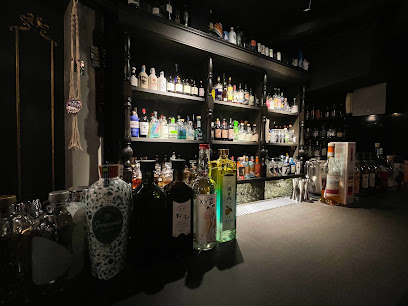
FOOD&SPORTS BAR &DART Jenny’s ジェニーズ
Experience the thrill of sports and delightful cuisine at FOOD&SPORTS BAR &DART Jenny’s in Hiroshima - the ultimate destination for fun and flavor.
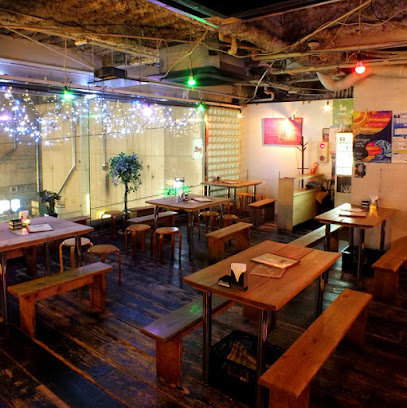
Lobby Side Bar Hiroshima
Discover the vibrant nightlife at Lobby Side Bar Hiroshima, where exquisite drinks and a cozy atmosphere await every traveler.
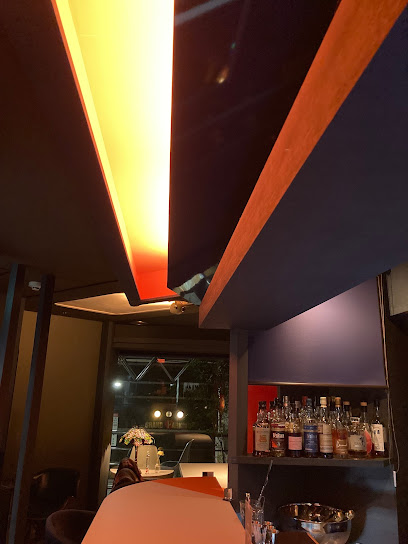
Local Phrases
-
- Helloこんにちは
[kon-ni-chi-wa] - Goodbyeさようなら
[sa-yo-u-na-ra] - Yesはい
[ha-i] - Noいいえ
[i-i-e] - Please/You're welcomeどうぞ
[do-u-zo] - Thank youありがとうございます
[a-ri-ga-to-u-go-za-i-ma-su] - Excuse me/Sorryすみません
[su-mi-ma-se-n] - How are you?お元気ですか?
[o-ge-n-ki-de-su-ka] - Fine. And you?元気です、あなたは?
[ge-n-ki-de-su, a-na-ta-wa] - Do you speak English?英語を話せますか?
[e-i-go-o-ha-na-se-ma-su-ka] - I don't understandわかりません
[wa-ka-ri-ma-se-n]
- Helloこんにちは
-
- I'd like to see the menu, pleaseメニューを見せてください
[me-n-yu-u-o-mi-se-te-ku-da-sa-i] - I don't eat meat肉は食べません
[ni-ku-wa-ta-be-ma-se-n] - Cheers!乾杯!
[ka-n-pa-i] - I would like to pay, pleaseお会計をお願いします
[o-kai-kei-o-o-ne-ga-i-shi-ma-su]
- I'd like to see the menu, pleaseメニューを見せてください
-
- Help!助けて!
[ta-su-ke-te] - Go away!去って!
[sa-t-te] - Call the Police!警察を呼んで!
[ke-i-sa-t-o-yon-de] - Call a doctor!医者を呼んで!
[i-sha-o-yon-de] - I'm lost道に迷っています
[mi-chi-ni-ma-ya-t-te-i-ma-su] - I'm ill具合が悪いです
[gu-a-i-ga-wa-ku-i-de-su]
- Help!助けて!
-
- I'd like to buy...買いたいです...
[ka-i-ta-i-de-su] - I'm just looking見ているだけです
[mi-te-i-ru-da-ke-de-su] - How much is it?いくらですか?
[i-ku-ra-de-su-ka] - That's too expensiveそれは高すぎます
[so-re-wa-ta-ka-su-gi-ma-su] - Can you lower the price?値段を下げてもらえますか?
[ne-da-n-o-sa-ge-te-mo-ra-e-ma-su-ka]
- I'd like to buy...買いたいです...
-
- What time is it?今何時ですか?
[i-ma-na-n-ji-de-su-ka] - It's one o'clock一時です
[i-chi-ji-de-su] - Half past (10)十時半です
[ju-u-ji-ha-n-de-su] - Morning朝
[a-sa] - Afternoon午後
[go-go] - Evening夜
[yo-ro] - Yesterday昨日
[ki-no-u] - Today今日
[kyo-u] - Tomorrow明日
[a-shi-ta] - 1一
[i-chi] - 2二
[ni] - 3三
[sa-n] - 4四
[shi] - 5五
[go] - 6六
[ro-ku] - 7七
[shi-chi] - 8八
[ha-chi] - 9九
[ku] - 10十
[ju-u]
- What time is it?今何時ですか?
-
- Where's a/the...?...はどこですか?
[...wa-do-ko-de-su-ka] - What's the address?住所は何ですか?
[ju-u-sho-wa-na-n-de-su-ka] - Can you show me (on the map)?地図で見せてもらえますか?
[chi-zu-de-mi-se-te-mo-ra-e-ma-su-ka] - When's the next (bus)?次の(バス)はいつですか?
[tsu-gi-no(ba-su)-wa-i-tsu-de-su-ka] - A ticket (to ....)(...)までのチケット
[(...)ma-de-no-chi-ke-tto]
- Where's a/the...?...はどこですか?
History of Hondori
-
Hondori, a commercial district in Hiroshima, began to take shape during the Edo period (1603-1868) when it became a hub for merchants and traders. The area was strategically located, making it an essential part of Hiroshima's trade routes. The streets were lined with shops and stalls selling various goods, reflecting the vibrant economy of the time.
-
On August 6, 1945, Hiroshima was devastated by an atomic bomb, resulting in significant destruction. Hondori, being a central commercial area, was almost completely obliterated. The impact of the bombing led to a dramatic loss of life and the destruction of many historic buildings that once characterized the district.
-
After the war, the Japanese government and local citizens undertook extensive reconstruction efforts. Hondori was rebuilt and transformed into a modern shopping arcade, symbolizing resilience and recovery. The new Hondori became a focal point for commerce and social interaction in Hiroshima, showcasing a blend of traditional and contemporary Japanese culture.
-
Today, Hondori is not just a shopping area but a cultural landmark in Hiroshima. It hosts various festivals and events that celebrate local traditions and contemporary art. The district is home to numerous restaurants, shops, and galleries, reflecting the dynamic culture of the city and its commitment to preserving its history while embracing modernity.
-
Hondori's proximity to Hiroshima's Peace Memorial Park enhances its cultural significance. Visitors often explore Hondori before or after visiting the park, making it a vital part of the Hiroshima experience. The area embodies the spirit of recovery and peace, serving as a reminder of the city's tragic past while promoting forward-looking ideals.
Hondori Essentials
-
Hondori is centrally located in Hiroshima and is easily accessible from other neighborhoods. From Hiroshima Station, take the Hiroshima Electric Railway (Hiroden) to Hondori Station, which takes about 15 minutes. Alternatively, you can take the Number 24 or Number 26 bus directly to Hondori; the bus ride typically lasts around 20-30 minutes depending on traffic.
-
Hondori is a pedestrian-friendly area, making it easy to explore on foot. The main shopping street is closed to traffic, allowing for a relaxed stroll. For longer distances, the Hiroden tram system is convenient, with multiple lines connecting to other parts of the city. Bicycles can be rented at several locations for those who wish to explore at their own pace.
-
Hondori is generally a safe neighborhood for tourists. However, like any urban area, it is advisable to remain vigilant, especially in crowded places. Avoid poorly lit areas at night, particularly alleyways surrounding the shopping district. Petty crimes, such as pickpocketing, can occur, so keep your belongings secure and be cautious of your surroundings.
-
In case of an emergency, dial 110 for police assistance or 119 for fire and medical emergencies. The Hiroshima City Hospital and several clinics are located within a short distance from Hondori. It is advisable to have travel insurance that covers medical emergencies, and pharmacies are also available for minor health issues.
-
Fashion: Do dress modestly, especially when visiting temples and shrines. Don't wear excessively casual or revealing clothing. Religion: Do respect local customs and traditions; take off your shoes when entering someone's home. Public Transport: Do be quiet and courteous on public transport. Don't eat or drink while on the tram or bus. Greetings: Do bow slightly when greeting someone as a sign of respect. Don't engage in loud or disruptive behavior. Eating & Drinking: Do try local specialties, such as okonomiyaki. Don't waste food or refuse offerings as it can be seen as disrespectful.
-
To experience Hondori like a local, visit the various shops and eateries in the area, especially the small izakayas and street food stalls. Engage with shop owners and try to learn a few basic Japanese phrases; locals appreciate the effort. Don’t miss the nearby Peace Memorial Park and Museum, which are only a short walk away and provide a deeper understanding of Hiroshima's history. For a unique experience, explore the underground shopping arcade that connects to Hondori, offering a different shopping atmosphere.
Trending Landmarks in Hondori
-
Atomic Bomb Dome
-
Peace Memorial Park - Hiroshima
-
Hiroshima Peace Memorial Museum
-
Hiroshima National Peace Memorial Hall
-
Children's Peace Monument
-
Former Hiroshima Branch of the Bank of Japan
-
Clock Tower of Peace
-
Hondori Shopping Street
-
Former place of Kokutaiji Temple and Atago Pond
-
Mahatma Gandhi Statue
Nearby Cities to Hondori
-
Things To Do in Fukuoka
-
Things To Do in Osaka
-
Things To Do in Nara
-
Things To Do in Kyoto
-
Things To Do in Ulsan
-
Things To Do in Busan
-
Things To Do in Gyeongju
-
Things To Do in Pohang
-
Things To Do in Daegu
-
Things To Do in Andong
-
Things To Do in Nagoya
-
Things To Do in Kanazawa
-
Things To Do in Suncheon
-
Things To Do in Daejeon
-
Things To Do in Jeonju








